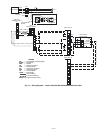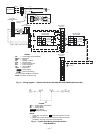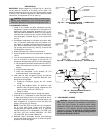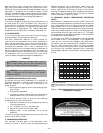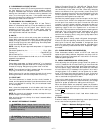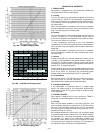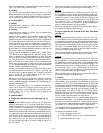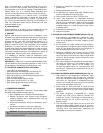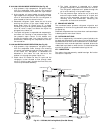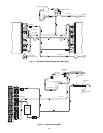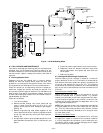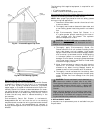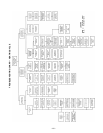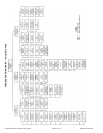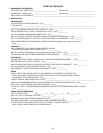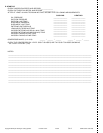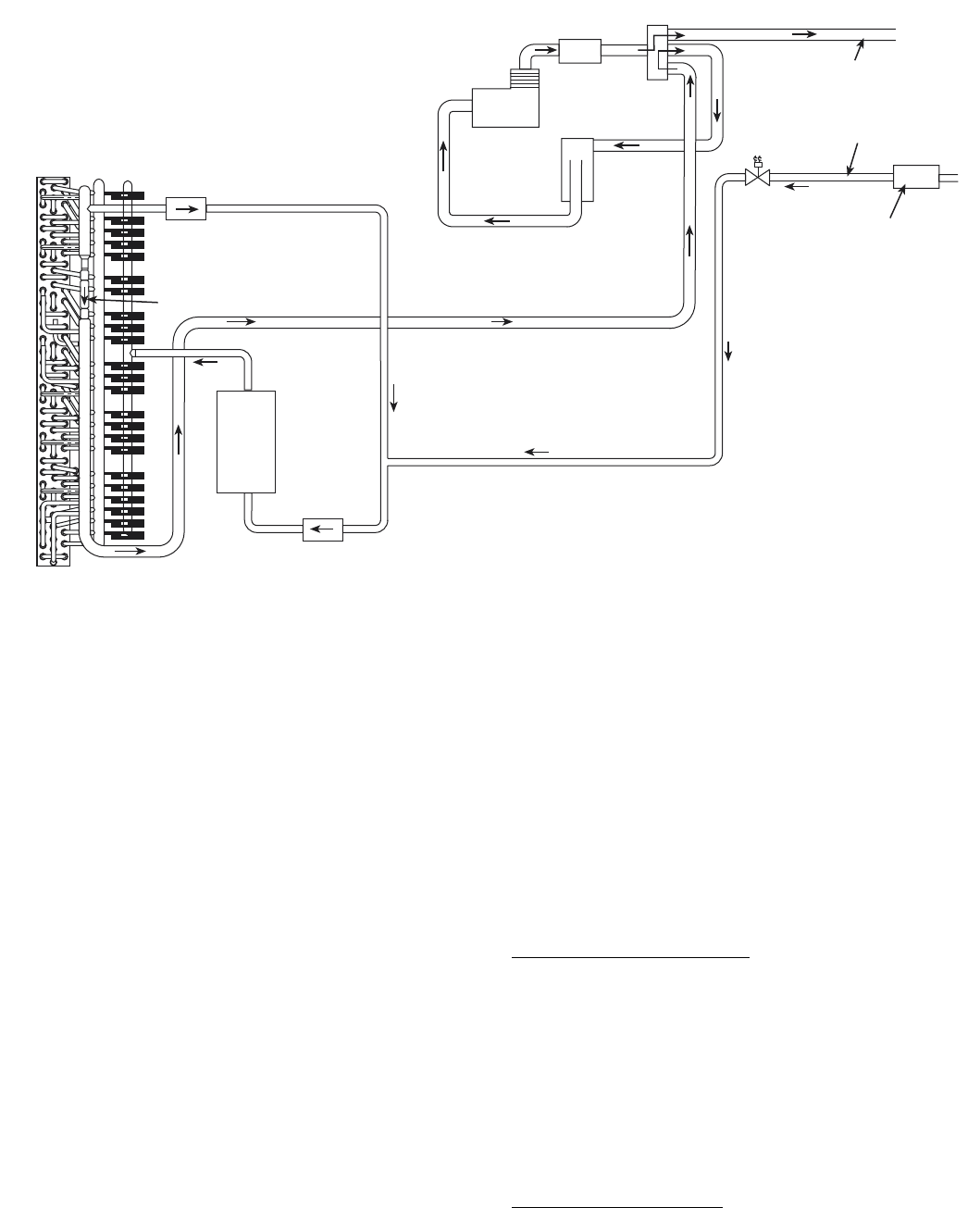
—23—
IX. COIL CLEANING AND MAINTENANCE
This section discusses the cleaning and the maintenance of
standard coils and E-Coated coils. Routine cleaning of coil
surfaces is essential to minimize contamination build-up and
remove harmful residue. Inspect coils monthly and clean as
required.
A. Cleaning Standard Coils
Standard coils can be cleaned with a vacuum cleaner,
washed out with low velocity water, blown out with com-
pressed air, or brushed (do not use wire brush). Fan motors
are dripproof but not waterproof. Do not use acid cleaners.
Clean coil annually or as required by location or outdoor air
conditions. Inspect coil monthly and clean as required. Fins
are not continuous through coil sections. Dirt and debris may
pass through first section and become trapped, restricting
airflow. Use a flashlight to determine if dirt or debris has col-
lected between coil sections.
Clean coils as follows:
1. Turn off unit power.
2. Remove screws holding rear corner posts and top
cover in place. Pivot top cover up 12 to 18 in. and
support with a board or other adequate rigid support.
See Fig. 24.
3. Remove clips securing tube sheets together at the
return bend end of the coil. Carefully spread the ends
of the coil rows apart by moving the outer sections.
See Fig. 25.
4. Using a water hose or other suitable equipment, flush
down between the sections of coil to remove dirt and
debris.
5. Clean the remaining surfaces in the normal manner.
6. Reposition outer coil sections. Reinstall clips which
secure tube sheets, and replace top cover and rear
corner posts.
7. Restore unit power.
B. Cleaning and Maintaining E-Coated Coils
Routine cleaning of coil surfaces is essential to maintain
proper operation of the unit. Elimination of contamination
and removal of harmful residue will greatly increase the life
of the coil and extend the life of the unit. The following
maintenance and cleaning procedures are recommended as
part of the routine maintenance activities to extend the life
of the coil.
Remove Surface Loaded Fibers
Debris such as dirt and fibers on the surface of the coil
should be removed with a vacuum cleaner. If a vacuum
cleaner is not available, a soft brush may be used. The clean-
ing tool should be applied in the direction of the fins. Coil
surfaces can be easily damaged (fin edges bent over) if the
tool is applied across the fins.
NOTE: Use of a water stream, such as a garden hose, against
a surface loaded coil will drive the fibers and dirt into the
coil. This will make cleaning efforts more difficult. Surface
debris must be completely removed prior to using low veloc-
ity clean water rinse.
Periodic Clean Water Rinse
A periodic clean water rinse is very beneficial for coils that
are applied in coastal or industrial environments. However,
it is very important that the water rinse is made with very
low velocity water stream to avoid damaging the fin edges.
Monthly cleaning is recommended.
FILTER
DRIER
COMPR
CK VALVE B
CK VALVE A
CK VALVE C
LLSV
LIQUID
HOT GAS
GAS AND OIL
MUFFLER
ACCUMULATOR
REVERSING
VALVE
REFRIGERANT MIXTURE
FROM INDOOR
COIL
TO INDOOR
COIL
ANGLE
VALVE
WITH SCHRADER
PORT
COIL RETURN
BEND END
Fig. 23 — 541A180 Heating Mode



